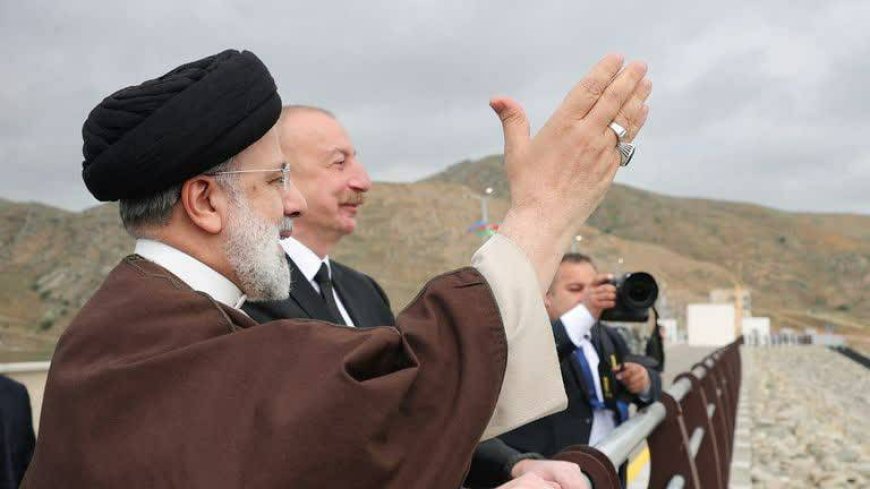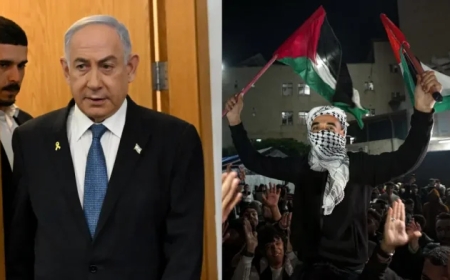Raisi's Eternal Legacy: A Vision of Peace for the South Caucasus

By: N. Daneshvar
At the outset, allow me to express my deepest sympathies for the tragic loss of Iran’s esteemed President, Seyyed Ebrahim Raisi, and his colleagues. Raisi’s unwavering dedication and service to the people of Iran will be forever remembered and honored.
In recent times, the geopolitical implications of the Zangezur Corridor Project, a joint initiative between Turkey and the Republic of Azerbaijan, have been the subject of controversy within Iranian political and media circles. This strategic route, commonly known as the NATO Corridor, has been a topic of analysis during the tenures of both the twelfth administration under former President Rouhani and the thirteenth administration led by the late President Raisi.
It is noteworthy that during Rouhani’s tenure, this critical issue did not receive adequate attention, often being relegated to the sidelines. However, with the inauguration of the thirteenth administration, a renewed emphasis was placed on good neighborly relations as a cornerstone of Iranian foreign policy. Consequently, concerted efforts were undertaken to address the challenges posed by the Zangezur corridor and safeguard Iran's national interests.
The ceasefire agreement between Azerbaijan and Armenia, facilitated by Russia, brought the Zangezur corridor issue into sharp focus. This land access route, designed to connect the Republic of Azerbaijan to its exclave, the Autonomous Republic of Nakhchivan, through the Armenian province of Syunik, carries the potential to exacerbate tensions and even trigger military conflict in the already volatile South Caucasus region. Given that the ceasefire agreement necessitates the passage of this route through Iran's borders, it has emerged as an immediate political, security, and economic concern for Tehran.
One of the primary objectives of the Zangezur Corridor is purportedly to establish a direct connection between Europe and the Caucasus, Central Asia, and ultimately South and Southeast Asia, bypassing Russia and, of course, Iran. The countries of the region, particularly Turkey and the Republic of Azerbaijan, seek to capitalize on this opportunity to consolidate their political and economic standing, especially in this strategic area.
The Islamic Republic of Iran has welcomed the restoration of Nagorno-Karabakh's sovereignty to Azerbaijan but firmly opposes the creation of the Zangezur Corridor. The establishment of this corridor not only threatens to alter the geographical maps of the region but also risks blocking Iran's land border with Armenia, effectively cutting off Iran's communication route to Europe. This scenario poses a grave threat to Iran's economic and political interests.
Furthermore, the Islamic Republic of Iran has consistently emphasized the importance of protecting the rights of all nations and countries, particularly its neighbors. Tehran has vehemently opposed the presence of foreign forces in the region, fearing that the implementation of destabilizing agendas like the Zangezur Corridor will open the door for external powers to meddle in the affairs of the region.
In the context of the current situation in the disputed Karabakh region and the ongoing conflicts between Baku and Yerevan, as well as the question of the Zangezur Corridor, much has been analyzed and discussed. However, it is crucial to highlight the diligent efforts of Ayatollah Raisi in this respect. Raisi's sincere attempts to resolve the challenges inherited from previous administrations, often stemming from imprudence or a lack of proper understanding of the issues, have left a lasting impact. One of the final challenges related to the Zangezur Corridor was successfully addressed by the late Raisi, resulting in significant progress and the establishment of promising agreements. In this regard, it is noteworthy that on May 21, President Ilham Aliyev of Azerbaijan expressed his gratitude for Raisi's efforts in resolving the issue of the Zangezur Corridor, acknowledging Iran's significant role in facilitating dialogue and promoting stability in the region.
As we navigate the complexities of the Zangezur Corridor issue, it is imperative that all parties involved engage in constructive dialogue and prioritize the preservation of regional stability. The Islamic Republic of Iran, with its long-standing commitment to peace and cooperation, stands ready to contribute to any efforts aimed at finding a mutually acceptable solution that safeguards the interests of all nations in the region.













































